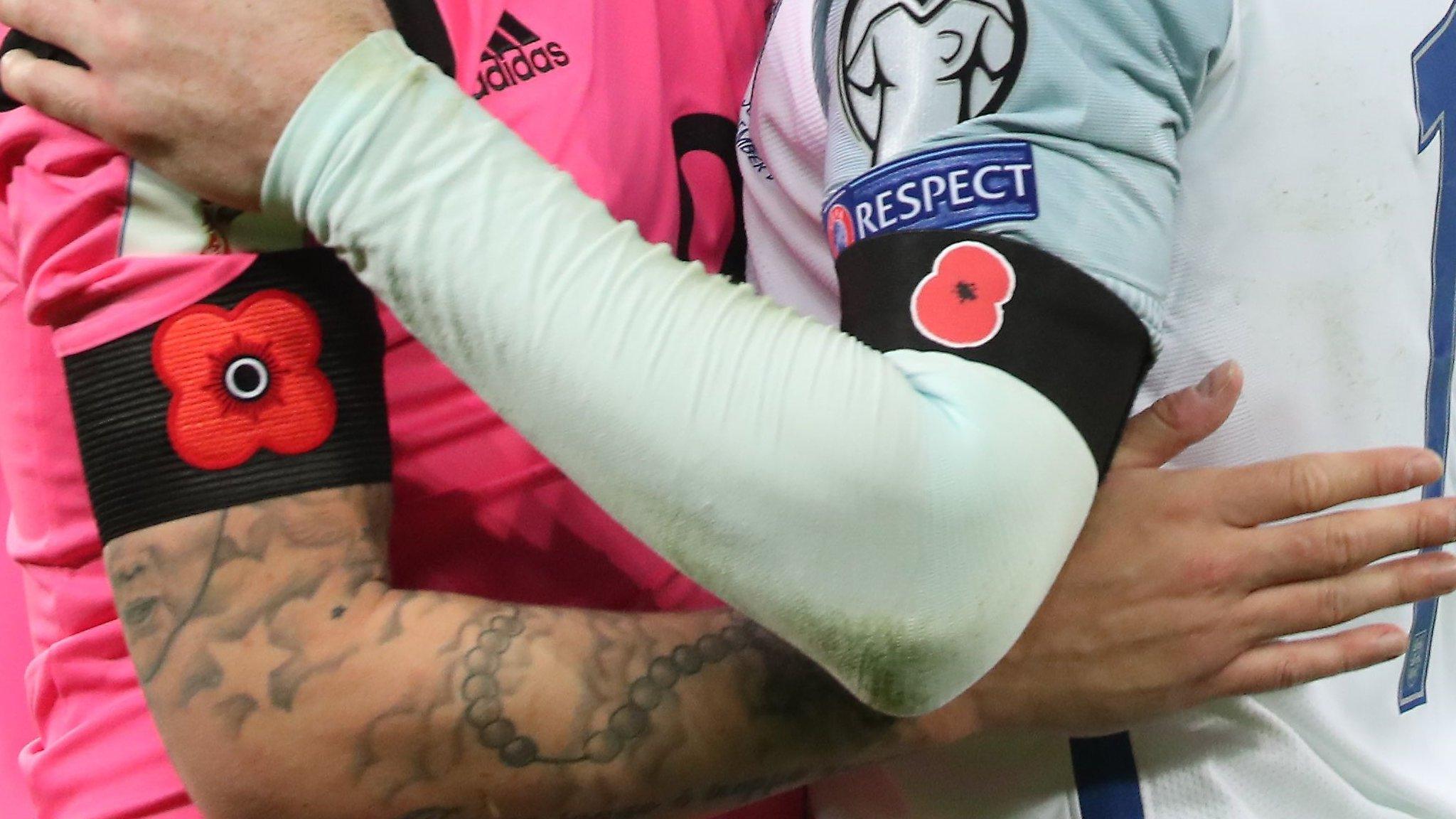Gordon Strachan decision is the Scottish FA raising the white flag
- Published
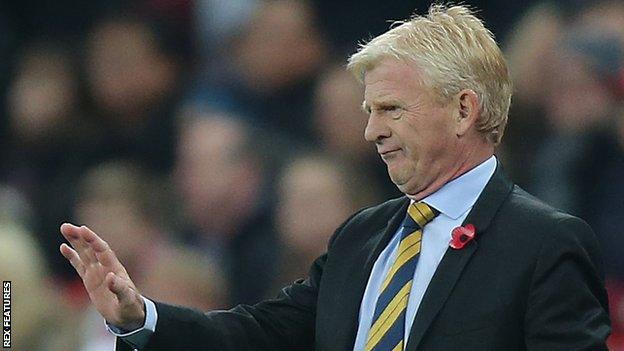
The SFA board decided "unanimously" to retain Strachan
In the Scottish Football Association's statement of Thursday evening, there is no mention of money and the kind of cash it would have taken to bring to an end the reign of Gordon Strachan as national team manager.
That's hardly a surprise. These things are never made public.
Removing Strachan and his coaches and finding replacements would have meant a serious hit to the coffers of an association that has routinely failed to benefit from the millions of euros on offer to those nations who qualify for major championships.
Money was not brought up in the statement, but it's inconceivable that it didn't play a part in the discussion.
Why pay when the World Cup campaign is already on life support? Why not accept your fate of another doomed mission, let him see out of his deal, save the cash and make a change if one needs to be made when the group fixtures are completed?
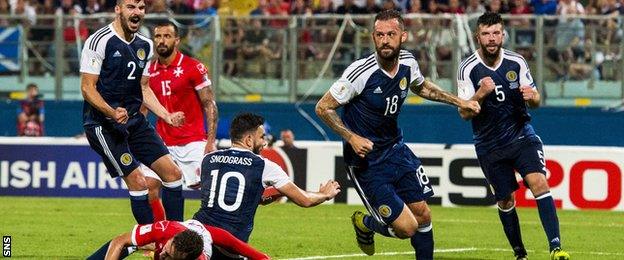
Scotland's only recent competitive win was against Malta
The SFA couldn't say any of this. It couldn't say it was unwilling, or unable, to pay off the manager, so a different narrative was delivered in its statement, a narrative of "jam tomorrow". In this optimistic view of the world, all that was missing was a complimentary pair of pom-poms.
All hope of a play-off spot for the World Cup is not lost, they say. They're clinging to the belief that Scotland can garner enough points from a remaining available total of 18 to force their way into the reckoning when the evidence of everybody's eyes tell us otherwise.
Presenting a scenario of Scotland reeling off win after win required a fair amount of chutzpah for an association that has watched its team concede seven goals in three winless games. And that on top of two years without a competitive win against anybody other than Malta and Gibraltar.
Stewart Regan, the SFA's chief executive, is quoted on how adamant Strachan is about his team's capacity to make up ground in the group. How? He doesn't say.
Regan points out that the board is convinced that Strachan still has the "hunger for the challenge". Hunger shouldn't have anything to do with it when you've failed to qualify for the most easily accessible Euros in history and then sit fifth out of six in a World Cup qualification group with your dreams going up in a puff of smoke.
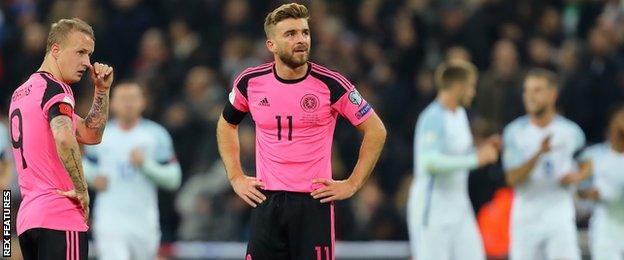
Scotland are fifth in World Cup qualifying Group F after losing to England
Scotland will limp on now until March, when they host Slovenia at Hampden. Will we hear again that Slovenia is not a must-win? Will we see anything different?
Will any new players be considered? Will there be any thoughts about a new formation? Is there likely to be any acknowledgement that, if Scotland keep doing the same things, they are going to end up with the same results?
There was no hint of that in Strachan's words in the SFA statement on Thursday. No acceptance that, if he's staying on, he needs to have a major think about what he is doing, who's he selecting and not selecting.
If he had spoken about a new beginning then you might - might - be inclined to buy into it. Is he even thinking about it that way? You would hope so, but it's unlikely.
There is so much to ponder. Does Scotland have to follow a slavish adherence to 4-2-3-1? Can a solution be found to the absence of dominant centre-backs by converting a full-back or a midfielder? Maybe not, but where are the ideas?
We saw a snapshot of Strachan's out-of-the-box thinking when he played Ikechi Anya at right-back at Wembley. What happens when Kieran Tierney and Andrew Robertson are both fit at left-back, along with Lee Wallace and Stephen Kingsley? Is it really one from four there? Does it have to be that way? Where's the innovation, the sense of a manager trying something a bit different?
And what about an enhanced cast of characters on the scene? Aberdeen's Graeme Shinnie, Fulham's Tom Cairney, Brighton's Jamie Murphy, Aston Villa's Ross McCormack, Stoke City's Phil Bardsley and, yes, if he ever starts playing and scoring again, Middlesbrough's Jordan Rhodes.
There are others, either on the periphery of the squad or totally divorced from it, that could be looked at properly. Too often, Strachan has been rigid in his thinking and it's done nothing for the team.

Stoke City's Phil Bardsley has been overlooked by Gordon Strachan
The tired mantra that "the players are just not there" is an entirely bogus argument when all that is being asked is that Scotland become truly competitive, like Northern Ireland. They have decent Premier League centre-halves - from West Brom, who sit 11th - and an impressive midfielder from Southampton - who are 10th - but who have precious little else in terms of quality and, most especially, depth.
And yet, from a squad largely made up of Championship, League One and Scottish Premiership players, Northern Ireland get the kind of results that are beyond Scotland.
The attitude of "no manager could do better with these players" is fatalism. It's tantamount to a white flag being raised. A quitter's charter, the central tenet of which is blown to the high heavens by what Michael O'Neill is doing with his meagre resources in Belfast.
The SFA's statement on Thursday did nothing to challenge the view that a blind faith - or a meek acceptance of failure - has taken an ever firmer hold of Hampden. When they can't get a draw against Georgia, can't beat Lithuania and can't avoid a drubbing against a moderate team like Slovakia, the idea of Scotland suddenly morphing into a points machine is a hard sell.
Scotland took the most affordable option, but a dwindling number of supporters would agree that it was the best one.
- Published17 November 2016
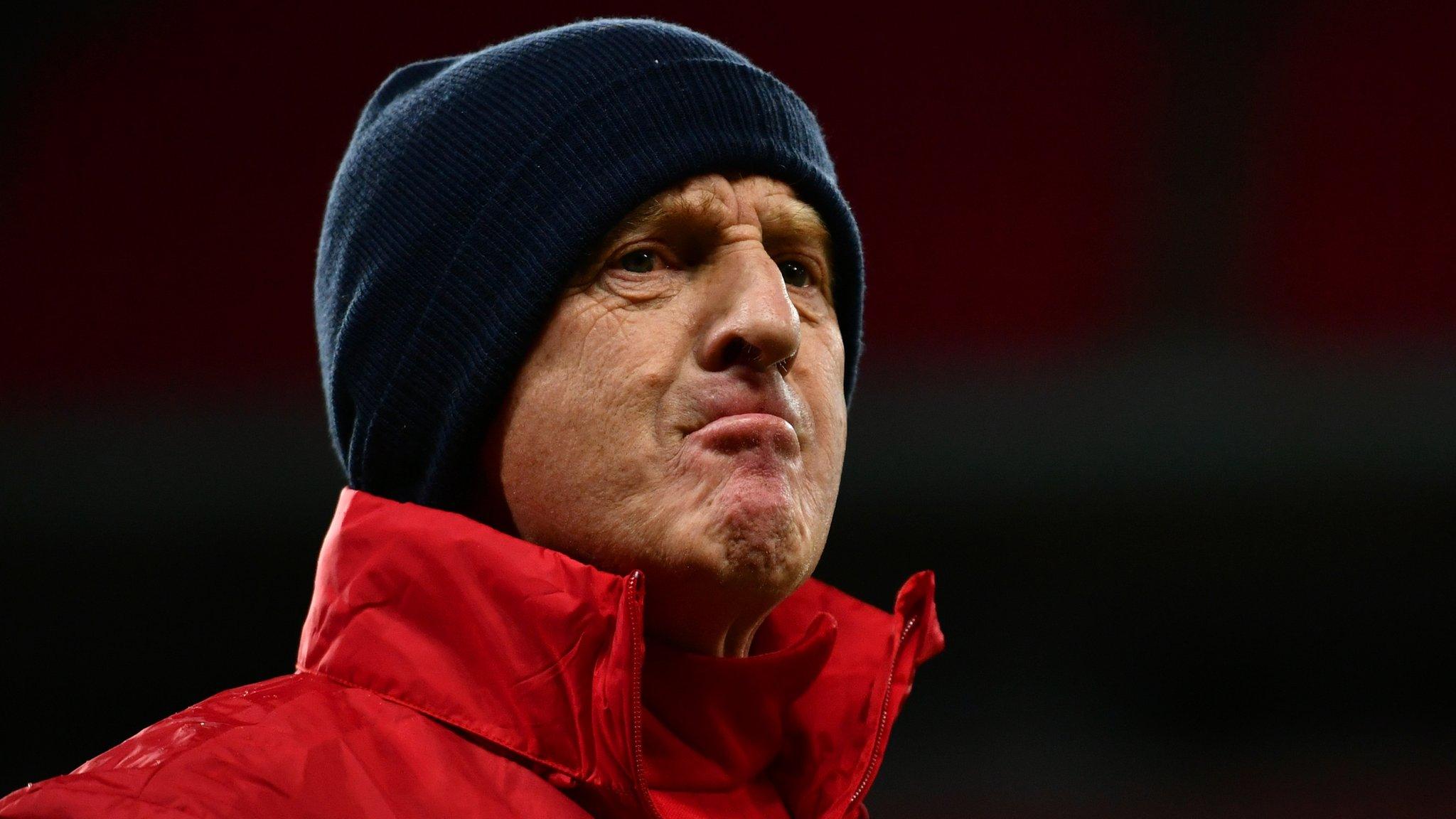
- Published17 November 2016
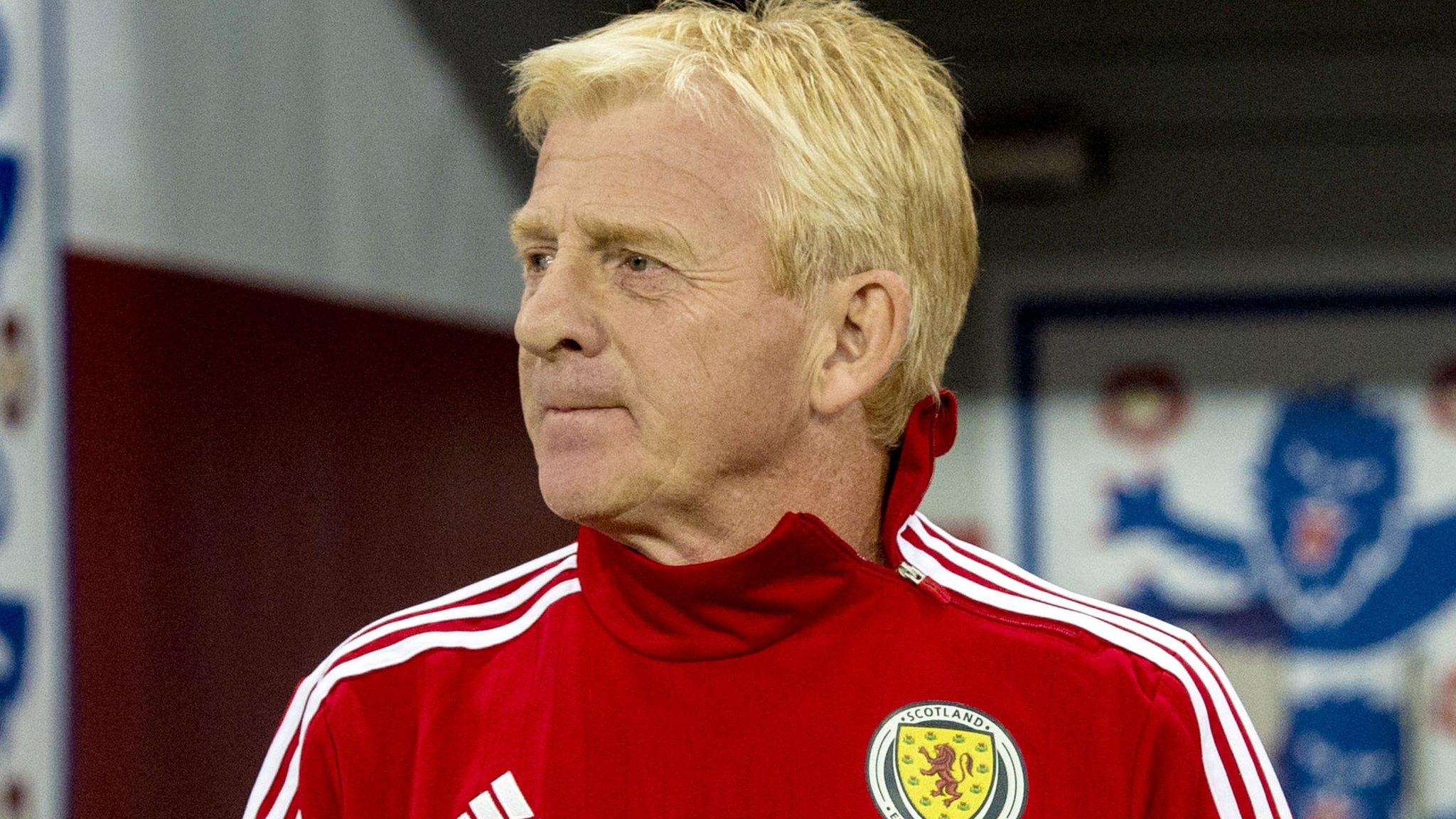
- Published17 November 2016
